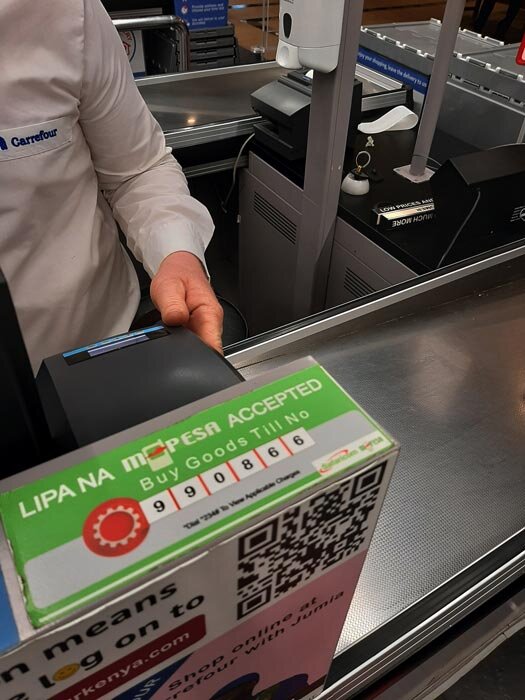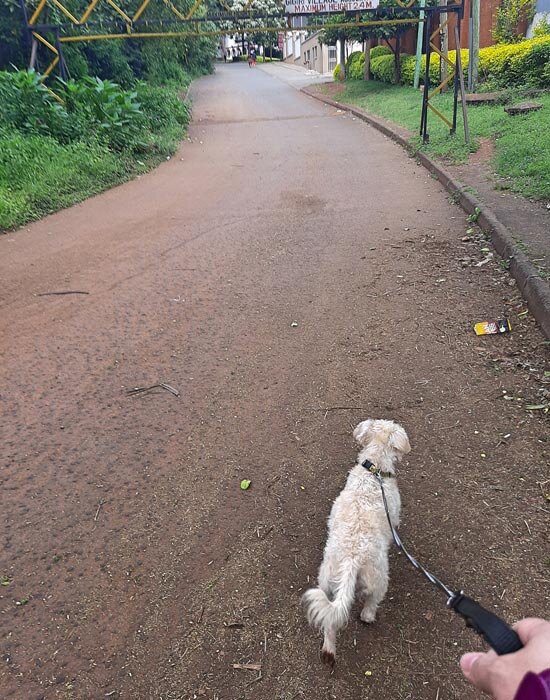Social Distancing in Nairobi
/But on this fourth weekend of March 2020, there is barely a stir in its various levels and wings. Many regular patrons have heeded the Kenyan government’s call for social distancing and their own international offices’ guidelines, so the buzz of conversations is nearly absent. Only music from a deejay’s table echoes in the hollow halls. If not for the intermittent appearance of a fellow mall rat or three, I can imagine myself being Robert Neville in I Am Legend—alone in the midst of opulence. I make my way across the mall, careful not to touch even the escalator balustrade; never mind if I might lose my balance in the process. Every time I come upon an entrance, where a security setup is always in place (informed by the Westgate Shopping Mall terror attack in 2013 than recent events), I squirt a free dollop of sanitizer on my hands. With all the disinfecting done by the mall staff around the clock, storefronts smell more like hospital ICUs than the latest Gucci eau de toilette.
Sunday afternoon at a popular upscale Nairobi shopping mall in the time of COVID-19
At the entrance of Carrefour, a French supermarket chain, a security guard politely points to the sanitizer pump on the wall. No pump, no entry. I comply and wryly look at my hands. I’m very sure my skin will soon dry up and wrinkle from all the alcohol being rubbed into its pores.
I encounter new floor “décor” in the supermarket: round stickers marking required distances among fellow customers queueing up at the till. There is a different look for the one that keeps the space between customers and Carrefour employees behind the counters. Anyway, there is almost no need for the stickers at this point. There is enough manoeuvring space on the aisles to avoid brushing against another buyer. Like everywhere else in Village Market, humankind inhabits this floor sparsely. The tsunami of panic buying had already happened shortly after the announcement of the first official COVID-19 case on 12th March. As of this writing, there are now 15 confirmed cases. And shelves are full of toilet paper again. Nobody really knew why they were buying the bathroom necessity in bulk. They just saw it on the Beeb and joined the herd.
Social distancing calculated in metres and laid down as law at a supermarket till.
Protection for everyone, especially for retail employees who carry on with work at the height of the pandemic.
At the till, I do a cashless, cardless transaction involving the use of M-Pesa, a globally celebrated tech innovation operated by Safaricom, the dominant mobile network in Kenya. It is essentially a bank managed by the telecom giant to provide a safe repository for the monies of unbanked citizens and residents who cannot deposit, withdraw, or borrow through traditional banking institutions. Nowadays, everybody and their billionaire uncle use it because of its convenience and universal accessibility. In the pandemic, its usefulness is magnified a hundredfold as the government encourages everyone to minimize the handling of coins and paper bills. Banks and mobile phone networks respond by eliminating fees for certain amounts and transactions. I touch nothing but my smartphone, which is already in my hand anyway.
Going cashless and cardless using M-Pesa, the celebrated Kenyan mobile innovation emulated by other networks across the globe.
I acknowledge that I live in a bubble defined mostly by socioeconomic factors. By sheer pragmatics, I have taken up residence in a “leafy suburb” (read: expat and rich Kenyan enclave) of Nairobi. I don’t belong here, judging by the holes in my pockets, but this is the location that opened up for me and one that’s able to accommodate my little furbaby. Every day, we walk at least five kilometres around the neighbourhood, so we are witness to the ebb and flow of humans making their way to and from their homes and the United Nations Office in Nairobi. Or the various embassies and NGOs in our area. But on Monday morning, 23rd March, we stroll through a ghost town. At a junction normally pulsing with the movement of vehicles and people at 8 a.m., I can do cartwheels in the middle of the road without mishap. The few humans on the sidewalks or the streets are clearly ones who cannot afford to work from home or miss their daily wages in situ. They are also clearly the front liners in this pandemic: store employees; nurses; garbage collectors; delivery people; public utility vehicle drivers; police officers; security guards; and household staff. I am aware that I owe them my ability to distance myself socially. I watch them without judgment of their need to be out to earn their daily bread by the sweat of their brow, and carry on.
Social distancing kicks in, so the road is clear to walk on.
At this point, the past Friday night’s highlight of a koroga (Kenyan outdoor dining on Indian dishes cooked, i.e., mixed—the English translation of the Swahili term--in real time in front of guests) is a distant memory. Organized by my landlady, it was one party I didn’t attend in person. In the spirit of social distancing, the actual attendance around the pot and live coals was small, only my landlady and her close friends, but we, her tenants, were invited to partake of the feast after all the mixing had been done and the spicy chicken smothered in some sort of curry sauce was ready to be served. My roommate and I needed just a few minutes to fill our plates with a mound of rice and chicken, and to make small conversation with the guests before darting back into the privacy of our respective rooms. That was the most social interaction I’ve had in weeks.
On a personal level, I must confess that I have barely broken my stride as COVID-19 started to descend and make its dread presence felt in Kenya. As an introvert and a writer-editor-publisher who’s worked from home for over a decade now, threats of lockdowns don’t make me sweat. As a Facebook viral meme goes: I was born for this. I do not suffer from boredom. I read. I walk in solitude. I play Pokémon Go. I stream movies and TV shows. I play with my dog. I sometimes have wine together with my landlady and roommates. There is plenty to do every day.
But I do hear and am mindful of the housekeeper’s stories about what’s happening “out there.” The Kenyan government has issued strict directives limiting the number of passengers in public utility vehicles, without capping the fares. This has become open season for drivers and their touts to double the prices for taking people from point A to point B. An engineer friend who works for a milk processing plant says there’s a milk shortage now. Businesses close earlier or have completely shut down; so, the news of mass layoffs may not be far behind. Ports of entry would have been locked down by 25th March.
So on one hand, life continues for me in Kenya because my work and play are mostly online and unimpeded by viral considerations. On the other hand, beyond the threshold of home and the home office, fear and panic are growing like a mushroom cloud overhead. Inasmuch as social distancing is meant to keep everyone safe from COVID-19, it is also fueling frustrations, hopelessness, and despair among many, and those could have far deadlier consequences in the foreseeable future. Meanwhile, I know that there will be more weekends like this in the coming days of confusion and uncertainty. I’m ready. I’m not going anywhere.
Agatha Verdadero is back to her passions of writing, teaching, publishing, and the outdoors, after a long hiatus. She has returned home to Kenya with her beloved poodle mix, Sam.
More articles from Agatha Verdadero







